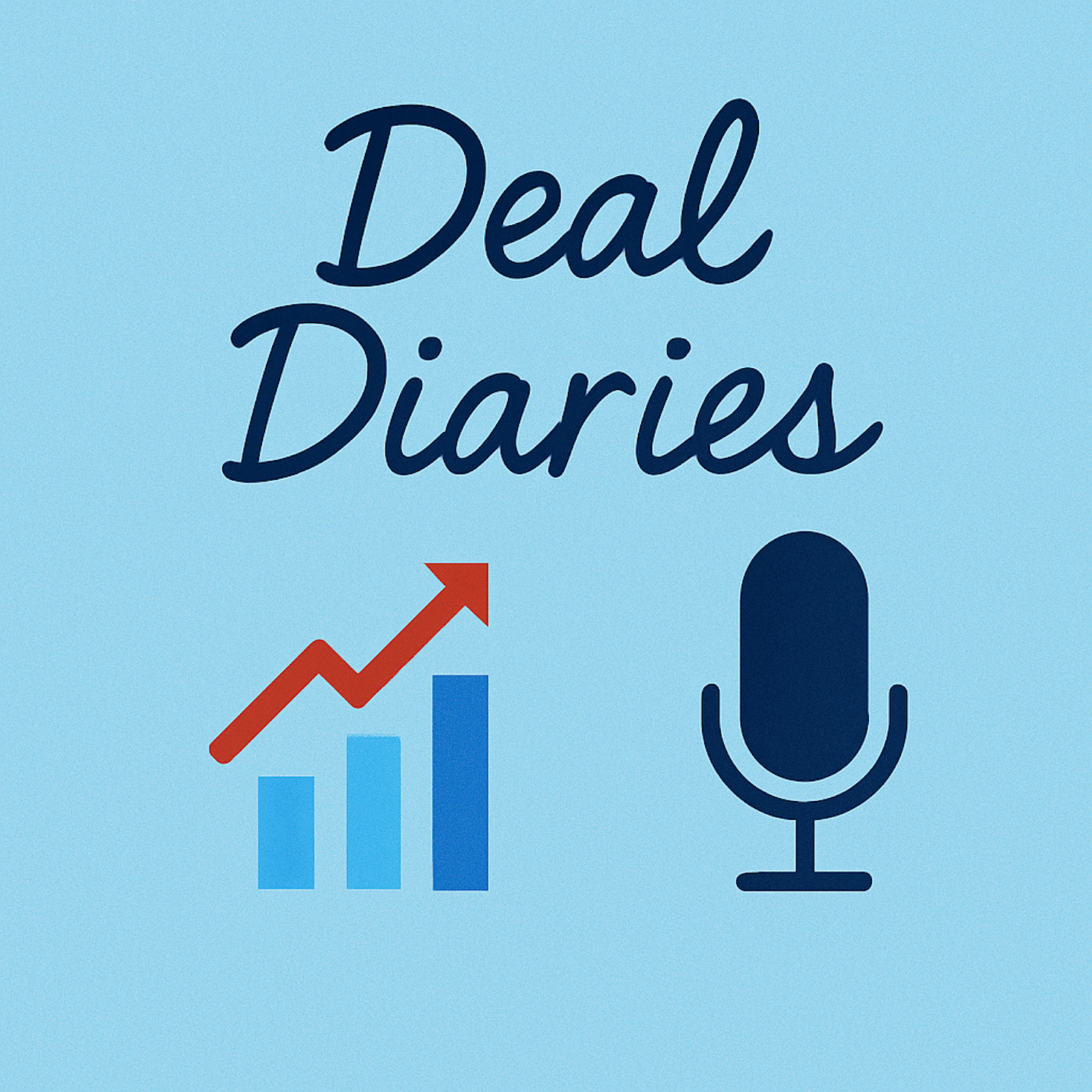Deal Diaries

Deal Diaries
Podcast Description
Deal Diaries is a podcast dedicated to uncovering the stories, strategies, and financial frameworks behind buying, acquiring, and selling companies in the European market. Our mission is to empower aspiring entrepreneurs and acquisition enthusiasts by providing open, honest, and educational conversations with the people behind the deals.
Podcast Insights
Content Themes
The podcast covers topics including M&A strategies, creative deal structures, and the buying and selling process with specific episodes exploring asset valuations, negotiating techniques, and practical advice for entrepreneurs, such as how to buy a company with limited funds and insights into the Baltic M&A landscape.

Deal Diaries is a podcast dedicated to uncovering the stories, strategies, and financial frameworks behind buying, acquiring, and selling companies in the European market. Our mission is to empower aspiring entrepreneurs and acquisition enthusiasts by providing open, honest, and educational conversations with the people behind the deals.
Deal Diaries returns with Piret, a veteran Estonian M&A lawyer (25+ years, co-head of corporate/M&A, real estate, employment). The episode demystifies how to buy/sell companies and where great legal work saves money, time, and headaches.
Start with strategy, not documents. Buyers must know why they’re acquiring: scale, synergies, new markets, or capabilities—and how value will actually be realized post-close. Decide early whether it’s a share deal, asset deal, or merger, and line up financing. Involve an experienced M&A lawyer as early as NDAs/LOIs and term sheets; big-law M&A specialists move faster, avoid redrafting loops, and focus negotiations on what matters.
Early documents & process.
NDA: standard, but watch out for excessive penalties and vague breach triggers.
LOI/Term sheet: mostly non-binding; confidentiality and exclusivity are binding. Set a realistic exclusivity window (often 3–6 months), extend if needed, and beware sellers running a parallel auction.
Due diligence is non-negotiable. Skipping DD to “save” cost is a false economy. Run legal, tax, and financial DD; add technical/operational/IP/IT or environmental as the business demands. DD surfaces compliance gaps, dependency risks (e.g., one supplier), hidden liabilities (including off-balance-sheet items), and deal-breakers. If comfort is still limited, protect yourself via reps & warranties, specific indemnities, retained price/escrow, or W&I insurance.
Pricing & valuation. Understand price mechanics:
Closing accounts (true-up after closing) vs. lockbox (price fixed off an earlier date with leakage protections).
Use suitable valuation methods (DCF for stable cash flows, EBITDA multiples, book/liquidation value where relevant). After DD, commercial terms (often price) are re-opened; legal risks are usually solvable.
Earnouts are back—and they’re where disputes cluster. Define metrics, adjustments, inclusions/exclusions, control rights, and dispute mechanisms with precision.
People & integration. Integration planning and communication are crucial. Culture fit, retention of management/key talent, supplier continuity, and coordinated announcements reduce disruption. Lawyers can play “bad cop” so founders and buyers preserve relationships for post-deal cooperation.
For sellers. Engage counsel early, run vendor due diligence, fix easy issues, and put order into contracts, corporate records, IP, HR, and compliance. Clean data rooms increase buyer confidence and price, and disclosed issues are typically excluded from seller liability.
Why deals fail. Many processes (reportedly near ~50% lately) stall late due to financing shifts, valuation gaps, macro/geopolitical risk, or uncovered risks. Early alignment, expert advisers, and disciplined process shorten cycles and improve outcomes.
Bottom line: clarity of purpose + early specialist counsel + rigorous DD + precise drafting + thoughtful integration = fewer surprises and better deals.

Disclaimer
This podcast’s information is provided for general reference and was obtained from publicly accessible sources. The Podcast Collaborative neither produces nor verifies the content, accuracy, or suitability of this podcast. Views and opinions belong solely to the podcast creators and guests.
For a complete disclaimer, please see our Full Disclaimer on the archive page. The Podcast Collaborative bears no responsibility for the podcast’s themes, language, or overall content. Listener discretion is advised. Read our Terms of Use and Privacy Policy for more details.